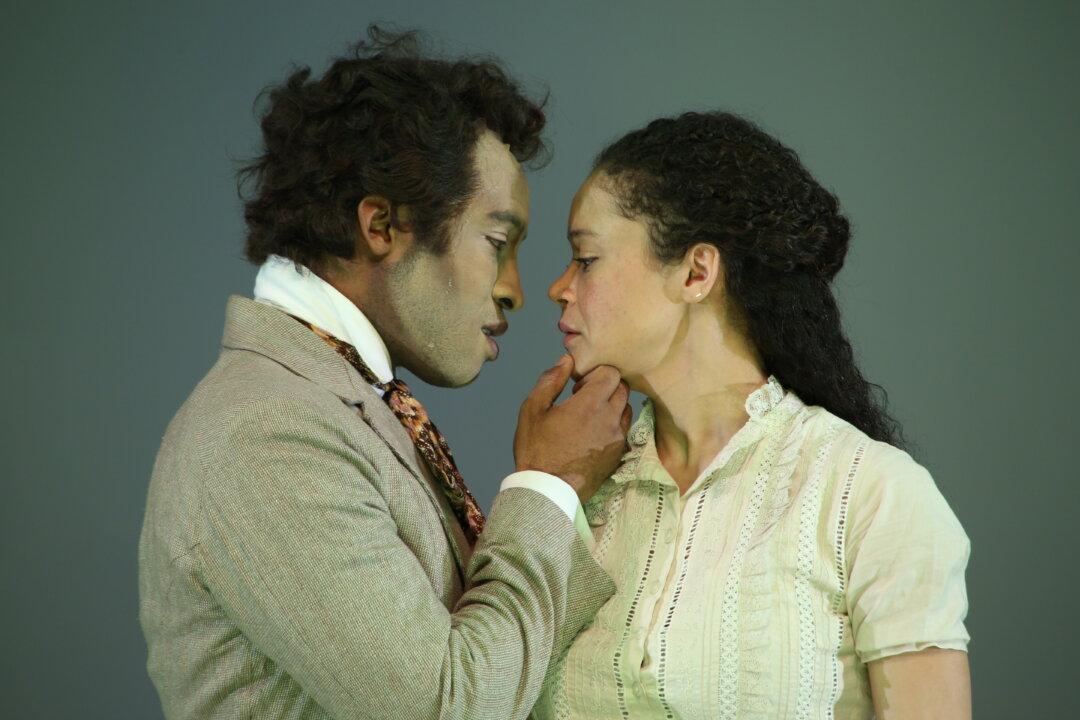NEW YORK—Playwright Branden Jacobs-Jenkins presents a new look at racism with his update of Dion Boucicault’s 1859 melodrama “An Octoroon.” This version first presented at Soho Rep. in 2014, is now at Theatre for a New Audience at Polonsky Shakespeare Center.
After a lengthy introduction, in which BJJ (Austin Smith—as a stand-in for Jenkins) recalls conversations with his therapist and the expectations that come from being a black playwright, he then channels the spirit of Boucicault—called here the Playwright (Haynes Thigpen). Then the action switches to the plantation Terrebonne in Louisiana where, in a sea of cotton, house slaves Minnie (Maechi Aharanwa) and Dido (Pascale Armand) are catching up on plantation gossip.
All is not well at Terrebonne. The master of the house has died leaving numerous debts, which his nephew George (Smith), recently arrived from France is trying to sort out. Among them are gambling losses to the scheming Jacob M'Closky (Smith).






